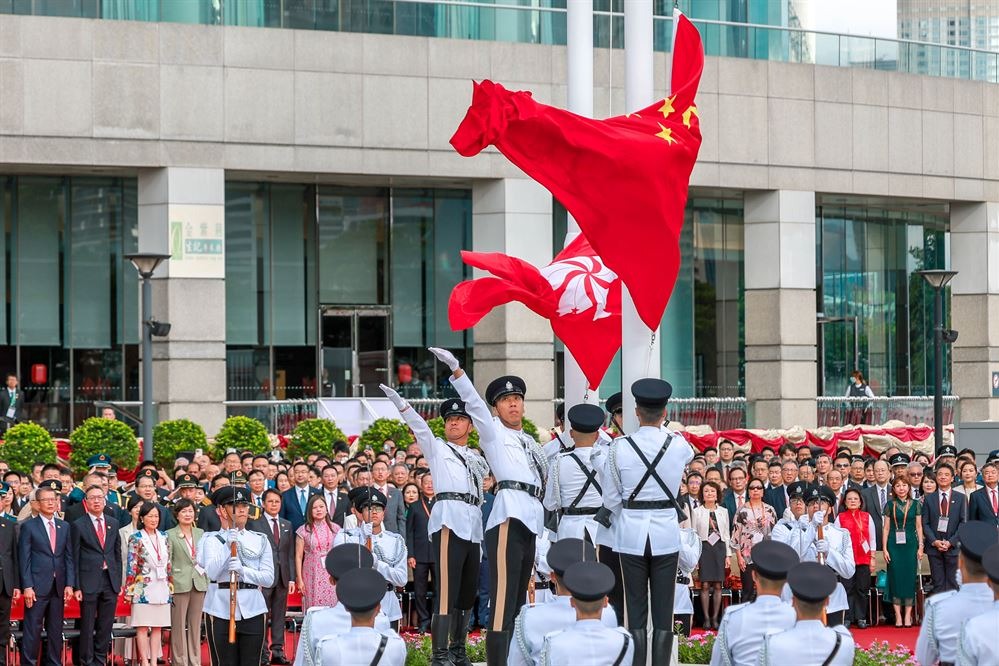Young CPC members become torchbearers for country's future

BEIJING -- Despite a packed schedule of exams and final papers at the end of the semester, Ling Jiajun still makes time every day to read online articles carried by Qiushi, a flagship magazine of the Communist Party of China, learning about the latest policies on rural development.
Studying urban-rural planning at Nanjing Tech University in East China's Jiangsu province, the 22-year-old applied to join the CPC two years ago, and hopes to work on rural revitalization after graduation.
During his field research in Chinese villages earlier this year, Ling, who was born in the metropolis of Guangzhou, was moved by what he saw in the countryside.
Like many young Chinese people, Ling felt inspired by and proud of the Party's rural work -- from 2013 to 2020, China lifted nearly 99 million rural residents out of poverty, contributing to over 70 percent of global poverty reduction during that period.
To consolidate its achievements in poverty alleviation, the Party is now implementing a revitalization strategy in the countryside.
"The CPC has been the driving force behind this transformation. I remember reading in high school about how young CPC members, many of whom were college graduates, went to the countryside to support local communities in those years," Ling said.
"There's still so much work to do in the villages, and I want to be part of what comes next," he added.
Like Ling, a growing number of young Chinese people are applying for Party membership, inspired by the Party's ideals and the country's development prospects.
As the CPC marks its 104th anniversary on Tuesday, the latest data has shown that over 1.78 million people under the age of 35 joined the Party in 2024, making up 83.7 percent of the Party's net membership growth that year.
By the end of 2024, young Party members in this age group exceeded 23 million, accounting for over one-fifth of the Party's total membership, data shows.
As a dynamic force, these members play a key role in the CPC's modernization efforts. With scientific and technological innovation central to China's modernization, the CPC aims to build China into a strong country in science and technology by 2035.
In this process, the Party stresses the role of young professionals, assigning them critical tasks in major national initiatives.
In 2020, as China's Long March 5 rocket prepared for launch at the Wenchang Spacecraft Launch Site in Hainan province, Zhou Chengyu, who was 24 years old then, calmly directed operations as the site's first female commander of a sub-system.
Zhou's growth in professional skills had been swift. Over the course of two years, she took part in five major launch missions -- each time in a different role -- before being appointed commander.
Zhou, for her part, proved worthy of the trust that was placed in her. For one mission, she had to climb more than 180 near-vertical steel steps to reach an 8-square-meter test cell packed with cables and pipelines.
She made four such climbs each day and kept that up for 60 days. In recognition of her dedication and performance, her then position was later designated a "vanguard Party member post."
"I've chosen the right path. As young people, our ambitions should go hand in hand with the country's goals," the young commander said.
Official data indicates that key scientists behind China's Beidou satellite system, quantum research initiatives and FAST telescope project are in their 30s.
Indeed, a new generation of CPC members is stepping into the spotlight, rising to meet the demands of the times while realizing their own potential.
Deng Wenhao, a CPC member and a doctoral candidate at Taiyuan University of Technology in North China's Shanxi province, remembers the day in 2024 when he stood up at the United Nations headquarters in New York to present a technique his team had developed to address both climate change and food security.
"It was really exciting -- turning what I've learned into something meaningful. There's nothing more rewarding for a researcher," he said.
Born in 1991 in Datong, a traditional coal hub in north China's Shanxi Province, Deng grew up witnessing firsthand how coal and power plants affected people's lives. As his grandparents were farmers, he also saw vast stretches of barren saline-alkaline land covered with what he remembers as "a layer of salt crusted on the surface."
When his supervisor suggested exploring more natural methods to treat carbon emissions, Deng immediately thought of that land. "I thought, why not capture carbon emissions and use them to fix alkaline soil?" he said.
His department thought the idea was unconventional, but his proposal won support. Li Ping, Party chief of the university's college of safety and emergency management and engineering, said that the topic addresses local economic needs.
"We encourage our researchers to innovate and solve practical problems. We don't restrict them in terms of research direction."
Still, the road wasn't smooth. Just collecting sufficient varieties of saline-alkaline soil turned out to be a challenge.
"That's when the Party really stepped in," Deng said. "Grassroots Party organizations helped connect me with locals who knew where to find the land I needed."
"The CPC keeps renewing itself and adapting to the times. It's vibrant and full of energy -- and that's why so many young people are drawn to it," Deng said.
- Young CPC members become torchbearers for country's future
- China's AI breakthrough set to be game-changer for early cancer detection
- A glimpse into 'The Louis'
- Scientists decode fruit flies' entire life cycle, offering clues for human health
- China to unveil cultural events marking 80th anniversary of victory against Japanese aggression, fascism
- Xi stresses building unified national market, promoting marine economy's high-quality development






































